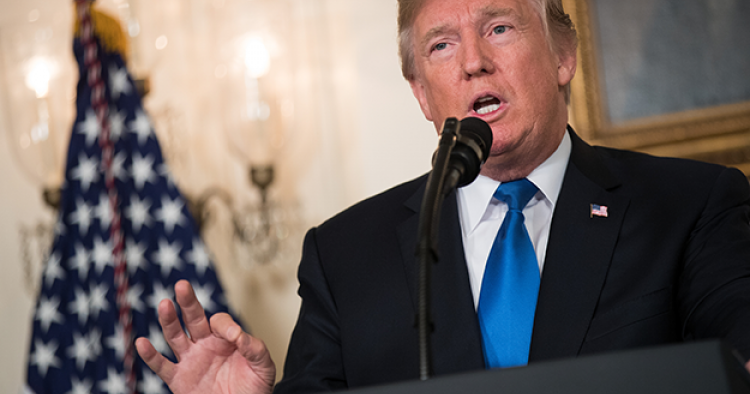Read the full article on The National Interest
As the Islamic Republic enters its fortieth year in power, the Trump administration needs to pay heed to the perils of hubris in its policy towards Iran. There is no silver bullet for gaining the upper hand with Iran, and American presidents have a poor track record in trying. While the reasons for failure are unique to each president, there has been a pattern of overestimating the utility of using threats of force to influence Iranian behavior, and underestimating Iran’s will and capacity to resist.
Jimmy Carter tried to end the Iran hostage crisis shortly after the Iranian revolution in 1979 with a daring and misguided rescue attempt, leading to a failed mission and a presidential electoral defeat in 1980. Under Ronald Reagan’s watch the Iran-Contra affair cast a pall over what at the time was perceived to be his administration’s overall effective foreign-policy record. Bill Clinton imposed the most severe sanctions on Iran in the hope to extract concessions, only to be left disappointed.
George W. Bush unwittingly handed Iran a strategic gift by invading Iraq and dismantling the Saddam regime in Baghdad, giving Iran an opportunity to project power into Iraq and the broader Arab world. While Barack Obama landed a landmark nuclear deal in 2015 that successfully avoided a military showdown with Iran, it is unclear whether even he, who had a more nuanced view of the Islamic Republic, fundamentally broke the stalemate between the two countries.
The Middle East Institute (MEI) is an independent, non-partisan, non-for-profit, educational organization. It does not engage in advocacy and its scholars’ opinions are their own. MEI welcomes financial donations, but retains sole editorial control over its work and its publications reflect only the authors’ views. For a listing of MEI donors, please click here.












